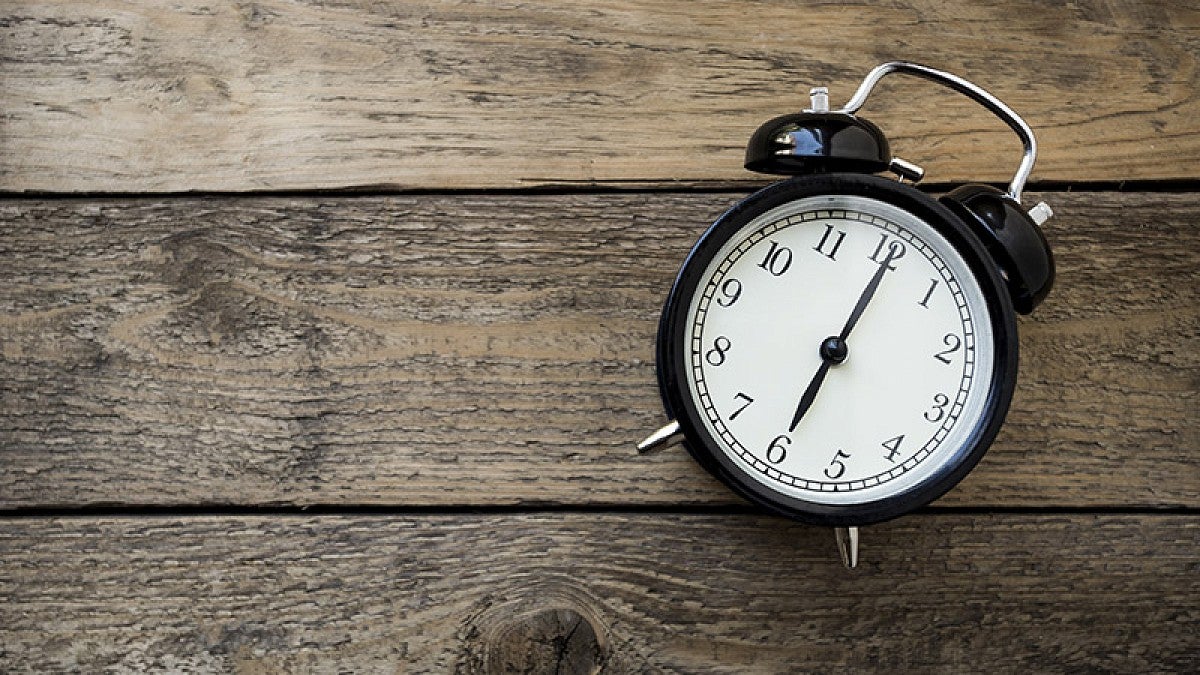Saving daylight comes at a cost. The day after most American clocks spring forward an hour, mining injuries increase, office workers waste more time and judges hand out harsher sentences.
It all comes down to the 40 minutes of sleep Americans lose during the shift to daylight saving time in the spring. David Wagner, a UO associate professor of management, recently wrote an article for The Conversation on the topic.
Wagner’s research found that the day after the spring shift to daylight saving time, mining injuries increase by 6 percent. Entertainment-related internet searches increase by 3.1 to 6.4 percent, suggesting that office workers are more likely to misuse their workplace internet access after the time change.
“Based solely on the findings from our two studies, along with a study showing that the time change predicts a 5 percent increased incidence of heart attacks, economists estimate that the annual spring time change costs the American economy $434 million each year,” Wagner writes.
The costs don’t stop there. A recent study found that judges hand out sentences that are 5 percent longer in duration the day after the time change.
“As the research evidence is considered, other states could end up joining Arizona and Hawaii in abstaining from the annual daylight saving time madness,” Wagner writes. “As we move toward that possibility, we may find it easier to save lives and money rather than chase the daylight.”
Wagner’s research examines moods and emotions in the workplace, the impact of sleep and fatigue on workplace outcomes, and the interface between work and life domains.


